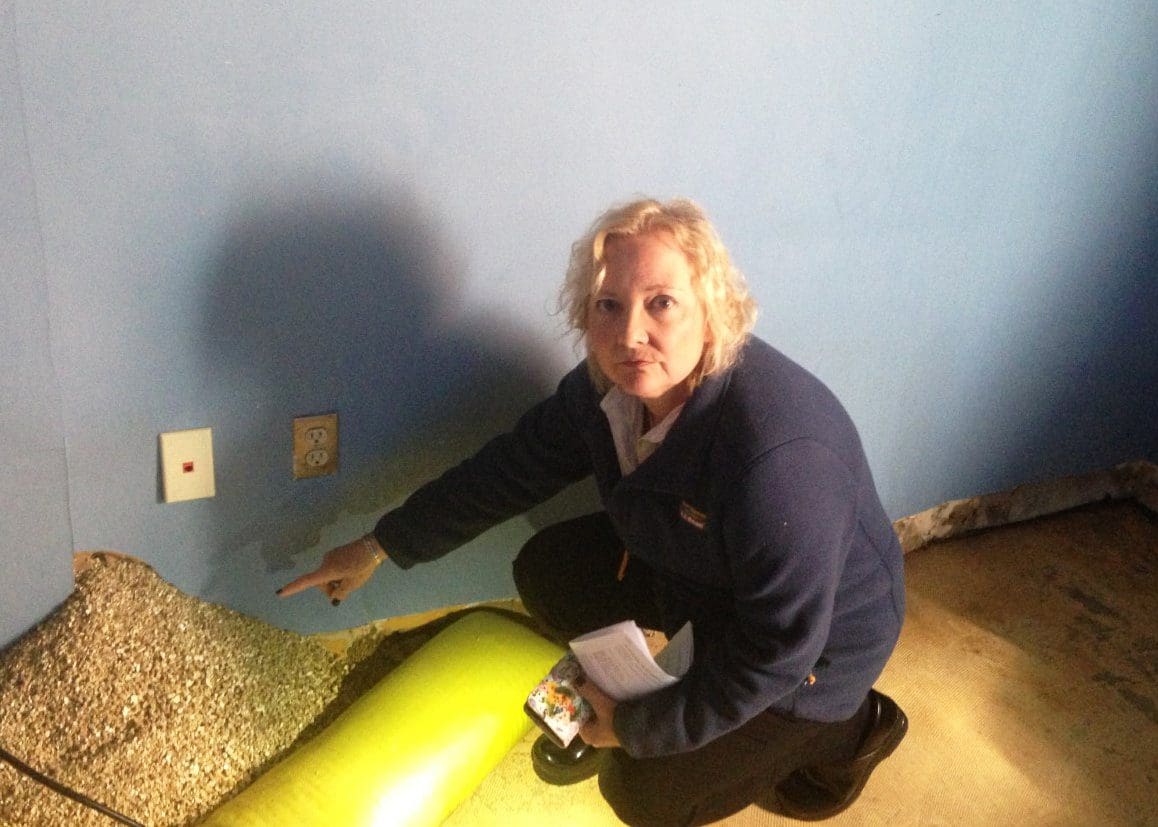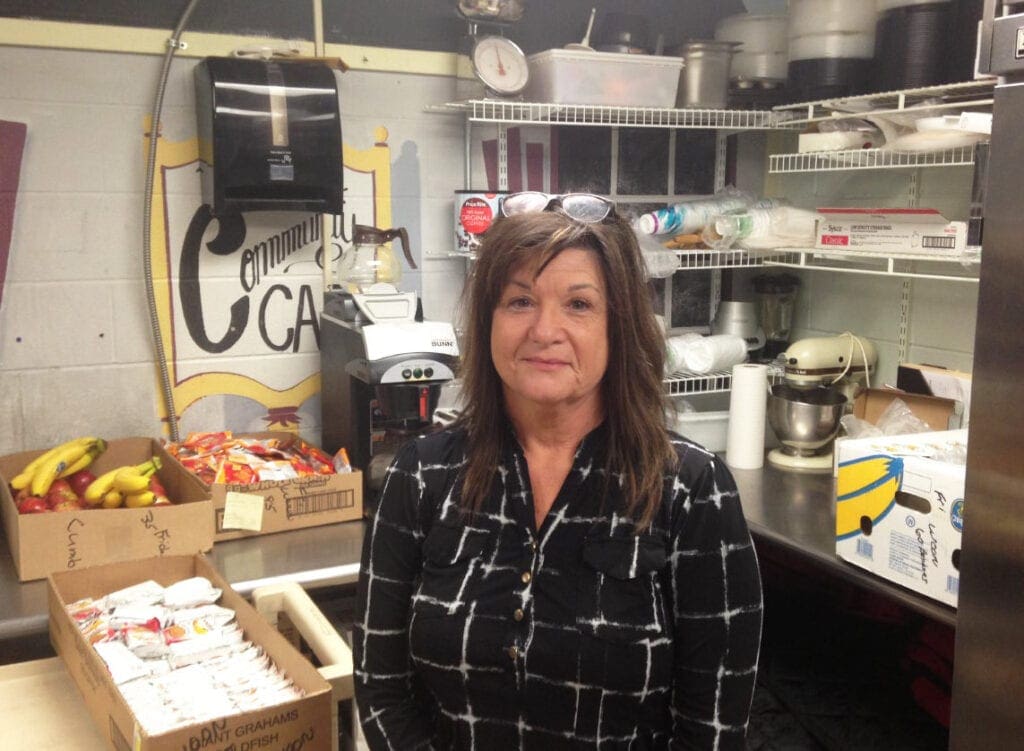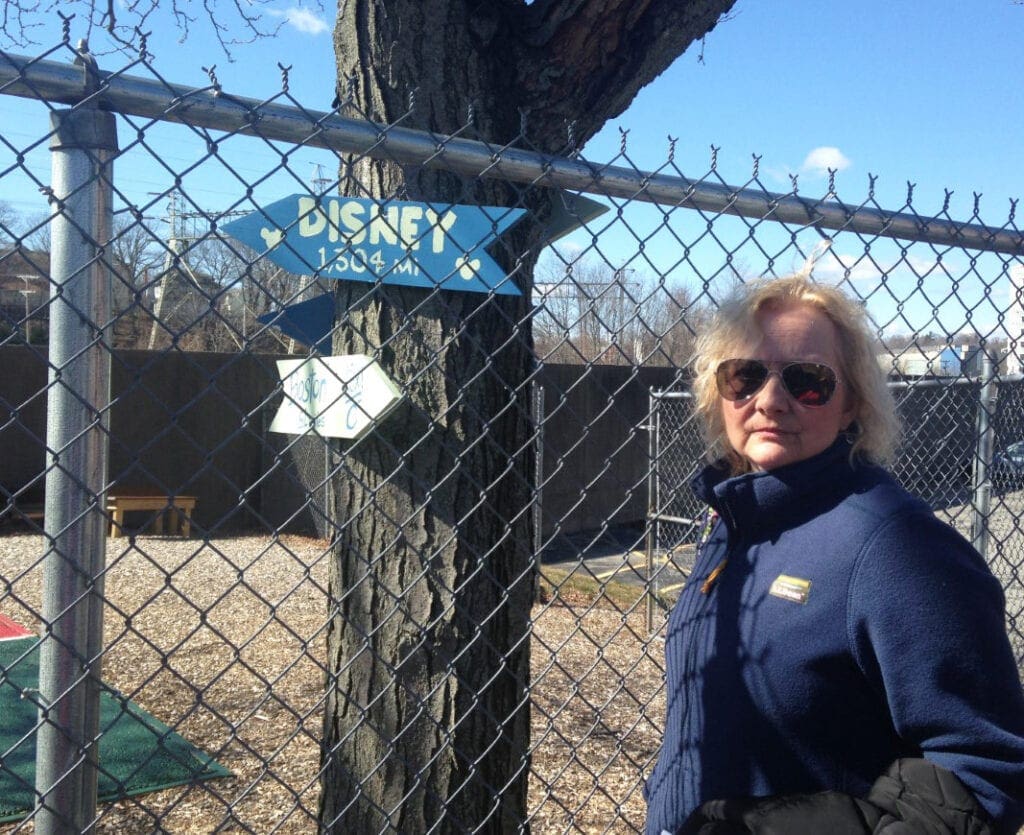Search Posts
Recent Posts
- Rhode Island Weather for June 17, 2025 – Jack Donnelly June 17, 2025
- ART! FabriCollage exhibition at Gallery at Providence City Hall June 17, 2025
- Adam Vinatieri hosts 3rd annual Clays 4 Charity at The Preserve – for US military charities June 17, 2025
- June is Internet Safety Month: Tips to protect your family – Cox New England June 17, 2025
- Juneteenth with Stages of Freedom: Finding Bannister Walking Tour June 17, 2025
Categories
Subscribe!
Thanks for subscribing! Please check your email for further instructions.

Is the state guilty of neglect at Woonsocket’s Community Care Alliance?
By Richard Asinof, ConvergenceRI.com
The wooden signpost, painted in a bit of whimsy, attached to a tree in the playground built by volunteers from Blue Cross & Blue Shield of Rhode Island as part of their Blue Angel efforts a few years back, pointed south, with “Disney” in white letters on a blue background, and the mileage, “1,304 Mi.”
Underneath it was a second signpost, pointing north, with “Boston 51 miles,” and an exhortation: “Go Sox!”
The playground at the former headquarters of the Community Care Alliance at 181 Cumberland St. in Woonsocket has, for all intents and purposes, now been abandoned, much like the building itself, a victim of apparent state neglect for its properties by the state division of Capital Asset Management and Maintenance, which has failed since 2017, when damage from rainwater pouring through a leak in the roof was first reported to them, to make any effort to repair the building.
Perhaps a new signpost could be erected, measuring the distance between Rhode Island state government and the agency headquarters in Woonsocket, which might as well be as far away as the planet Mars is from Earth, some 34 million miles away at its closest rotation.
“The citizens of Woonsocket have been abandoned, particularly the most vulnerable kids and families,” said Mary Turillo, the director of Behavioral Health Services for Children and Youth at the Community Care Alliance, when asked what she would tell Gov. Gina Raimondo if she had the opportunity to sit down and talk with the Governor, face-to-face, about what had happened. “I feel like the state has made Woonsocket particularly invisible around these issues. Like so many things in this state, if it doesn’t happen in Providence, it doesn’t happen.”
The problem was not just about Community Care Alliance being ignored by the R.I. Department of Administration for three years and being forced to abandon its headquarters, which it had leased for $1 a year since 1981. The message being sent by the state was even more hurtful, according to Turillo and her colleagues: The state did not care about the clients.
On the front lines of despair
Nearly three years after water damage from a leaking roof had first been reported, during which time the R.I. Department of Behavioral Healthcare, Developmental Disabilities and Hospitals twice re-licensed the facility [the last time in 2019, photographs had been taken to show the problems created by water damage to the building from a leaking roof], some 50 staff members from the community agency, which serves as a safety net for families and children in Woonsocket and surrounding communities providing behavioral health and mental health services, have been forced to relocate because of deteriorating air quality conditions in the building, including “black toxic mold,” or Stachybotrys, identified in an Air Quality Report conducted on Dec. 13, 2019, by Ocean State Analytical Services.
The recommendation: “The roof of the building needs to be replaced. All of the molds need to be remediated by a professional mold remediation company using air scrubbers to prevent the spores from spreading to other areas of the building,” wrote Josephine L. Saltzman, Ph.D., from Ocean State Analytical Services.
Community Care Alliance itself had to hire and pay for the contractor to conduct an analysis of the air quality twice in 2019, once in May and again in December, prompted by employee complaints about health conditions, because employees were getting sick.
For whatever reason, the state took no action to repair the roof of the building, despite repeated efforts made by Community Care Action, according to Karen Rathbun, the Vice President for Administrative Services and Human Rights Officer at Community Care Alliance.
“If they had taken care of the roof three years ago, the walls and the interior infrastructure would not have been impacted to this degree,” she said, her voice tinged with sadness and exasperation about the state’s lack of response. “We have walls that are just opening up, and the insulation is pouring out. We sent video clips to the state of the rain just coming in through the roof, and you can hear it. I’ve described it as “rainforest” to the state. I have done everything I can to ask the state: What can you do about this?”

During this time, numerous outreach efforts were attempted to alert state officials about the deteriorating condition of the building, asking them to take action, according to Benedict F. Lessing, MSW, president and CEO of Community Care Alliance. The state officials contacted included: Michael DiBiase, former director of the R.I. Department of Administration; the Governor’s office; R.I. EOHHS; Rebecca Boss, former director of R.I. BHDDH; and senior staff at R.I. DCYF. The new director of R.I. BHDDH, Kathryn Power, has been briefed on the situation.
Worse, as a result of the state’s inaction, the agency’s clients, estimated to be between 100 and 200 people a day, instead of entering the welcoming environment at the former agency headquarters, are now forced to trek to the new temporary location at 245 Main St. in Woonsocket, a much older building with an odd configuration where there is no parking. The forced move cost Community Care Alliance $20,000 out of its own budget, according to Lessing.
Clients need to find parking on the street or in the municipal lot under the railroad tracks. “There are some people there who you may not want your five-year-old running into,” Turillo said.
Food insecurity
Still ensconced in the basement of the building, for the moment, is a food services program managed by Community Care Alliance, which has also been ordered by the state to find a new location, according to an email sent by Steven C. Denoyelle, Deputy Chief, Division of Facilities Management, the R.I. Department of Administration.
In a tersely worded email dated Feb. 5, 2020, Denoyelle wrote that the start date for the relocation for the food program “should be immediate. Duration, at a minimum, should be at least 2 years, with the possibility of permanently, depending on the State’s determination of the building’s future.”
Translated, the state may not have any plan or desire to repair the building, given the cost and the extent of the problems caused by failure to repair the roof when problems first surfaced three years ago.
For Rathbun, who has been with Community Care Alliance for 30 years, Denoyelle’s email “felt like a death sentence for this building. I was shocked to see that,” she said.
State officials have said that they have received a bid for repair of the building but that bid has not shared with Community Care Alliance, according to Rathbun.
To restore the building, the roof will need to be replaced, the walls will need to be repaired, the carpeting replaced, and then air scrubbers will need to come in to eliminate all the mold, according to Rathbun.
According to Lori Dumas, who has managed the food program for the last nine years, it serves as a lifeline for many of those in the community who lack food resources. Through the Rhode Island Food Bank, it receives more than 2,000 pounds of food a week to disperse to families and through its ongoing programs. The program also receives donations of fresh vegetables from the Franklin Farms Community Garden, Dumas said. “We get fresh vegetables that we can get out to our families and clients. We send out recipes, so they can learn how to do some of the cooking at home.”
“We prepare, package and deliver more than 2,000 meals a week to our residential homes [the R.J. Wilson House and Jellison House] and to our two local Boys and Girls Clubs [in Cumberland and Woonsocket],” Dumas said, providing ConvergenceRI with a brief tour of the basement facility. “This is where all the cooking is done, all the prepping, packaging, and dishwashing, with two commercial ovens in use.”
Dumas pointed to what she called “my prized possession,” a 25-square-foot walk-in refrigeration unit, paid for by a grant from the Champlin Foundation, a combination cooler and freezer. If and when the food service program is forced to relocate, the custom-built walk-in would probably have to be abandoned, Dumas lamented.
Dumas shared her worries about the difficulty of finding a comparable space to relocate the program and the licensing requirements to get it up and running, without any financial support from the state.
Risk factors
It is no secret that Woonsocket has huge unmet needs when it comes to serving its families and children. In 2018, Woonsocket had the highest rate of child victims of abuse and neglect in the state, at 35.7 victims per 1,000 children, more than double the Rhode Island state numbers, at 14.6 child victims of abuse and neglect per 1,000 children, according to the 2019 Rhode Island Kids Count Factbook.
The high numbers of child abuse and neglect, according to the Factbook analysis, are symptoms of parents struggling with “a combination of social and economic issues.”
Further, in measuring third-grade reading skills for students in Woonsocket in 2018, only 17 percent of students tested, 84 out of 481, met expectations, outcomes clearly connected to social determinants of health and the unmet behavioral health and mental health needs.
For senior management at the Community Care Alliance, the abandonment of the headquarters at 181 Cumberland St. in Woonsocket was not just about a building and a playground, it was about the betrayal and abandonment of the community of Woonsocket.
“There is so much need in this community,” said Bridget Bennett, Vice President of Family Well Being and Permanency at Community Care Alliance, who has been with the agency for 35 years. “We have the highest incidence of abuse and neglect in the state. We have one of the highest rates of poverty in Rhode Island [with nearly 40 percent of children living in poverty.] We have a greater need for behavioral health services. We’re providing all kinds of services helping people – community action programs, food, utilities, employment and training, heating assistance, one-stopping in how we can connect the person with services.”
Disturbances in the force
On Thursday morning, March 5, at the exact same time that ConvergenceRI was sitting down and talking with the senior management at Community Care Alliance, whose motto is “empowering people to build better lives,” and taking a tour of the former headquarters, Gov. Raimondo, Dr. Nicole Alexander-Scott, the director of the R.I. Department of Health, and Brett Smiley, the director of the R.I. Department of Administration, were conducted a briefing on the state’s updated response to the spreading threat of coronavirus in Rhode Island.
The briefing was an attempt to share the latest strategies and testing results and to demonstrate and to reassure the citizens of Rhode Island that the state was managing the public health threat competently.
If the onslaught of the coronavirus in Rhode Island, in the U.S., and across the globe demonstrated the critical importance of investments in public health as a common denominator of future economic prosperity and the interconnectedness of the world we live in, the forced abandonment of the Community Care Alliance headquarters at 181 Cumberland St. in Woonsocket demonstrated the extremely high cost caused by the state’s neglect in not investing in repairing the roof of a building in timely fashion and, as a result, disrupting a vital community network that served that city’s most vulnerable residents.
Rathbun, Bennett and Turillo attempted to explain to ConvergenceRI the magnitude of what had been lost when the agency had been forced to abandon its headquarters because of a failure to repair the damaged roof in a timely fashion – a carefully constructed environment of trauma-informed care, putting the clients first.
In the environment the agency created, Rathbun explained, the goal was to make sure that “you don’t have to tell your story more than one time.” That environment, she continued, was pleasant, cheerful, and welcoming, one that “catered to a child and a family that is going through trauma.”
The agency conducted an evidence-based assessment, Rathbun said. She compared it to going for a physical, where the doctor would ask you about your medical history – and your family’s medical history.
The approach was all part of answering the question, Rathbun continued: “Where are we going to go next? And, maybe, [identifying] the root causes of what’s happening right now in your life.”
What comes next?
The former headquarters of Community Care Alliance is right down the road from the national headquarters of CVS. It is also located nearby to Landmark Medical Center and to Woonsocket High School. It served as a convenient place for clients to come. “Everyone can get here,” Rathbun said.
The issues around Community Care Alliance having to abandon its headquarters cuts much deeper than neglect and abandonment by the state, according to the senior managers at the agency.
For Bennett, it speaks to the way that people still don’t see behavioral health in the same way they see physical health.
For Turillo, it speaks to how invisible the work that the Community Care Agency does. “There is no leadership around children’s behavioral health in this state,” she said. “DCYF is theoretically the authority for behavioral health. But they have backed away over the years from that responsibility. So, it is left to the insurance companies, who often seem to care more about costs.”
For Rathbun, the problem is related to the assumptions built around nonprofits. “I feel like they think: they’ll land on their feet. They’ll figure it out. They’re a nonprofit, so they’ll do what they need to do because that’s what they do. Because of our hearts.”

To read full article:
Photo: Karen Rathbun, vice president of administrative services at Community Care Alliance in Woonsocket, points to a hole in the wall with insulation pouring out, caused by water damage from a leak in the roof at the state-owned building, which was identified in 2017 but never repaired by the R.I. Department of Administration, leading to unhealthy conditions, including black mold, forcing the agency to move to temporary offices.
Richard Asinof is the founder and editor of ConvergenceRI, an online subscription newsletter offering news and analysis at the convergence of health, science, technology and innovation in Rhode Island.
